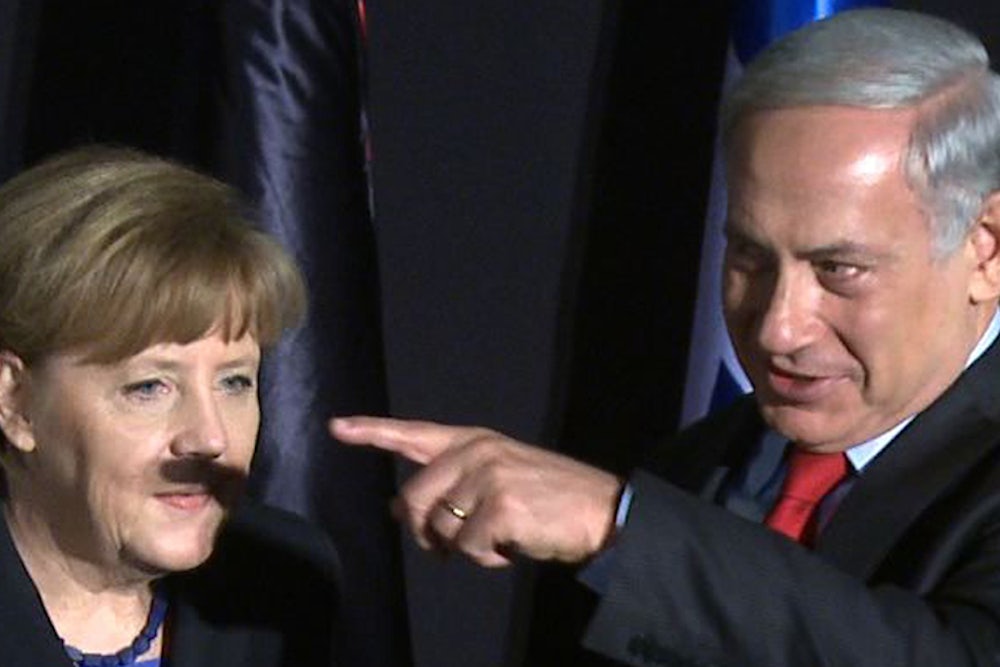In a photograph captured Monday by The Jerusalem Post’s Marc Israel Sellem, Israeli Prime Minister Benjamin Netanyahu pointed in front of German Chancellor Angela Merkel and thereby inadvertently created a shadow over her face that, well, sure does resemble a Hitler moustache. Oh heil no! (Sorry, I stole that one.)

Clearly this was not intentional. But the photo has gone viral, been picked up by The Drudge Report, and in some way or another likely made it across your transom already. And this is not because it was just an innocent goof. It is because it is a particularly loaded goof. And it is loaded—but not for the reason you might think.
The most viscerally affecting aspect of the image is seeing the moustache of Germany’s twenty-second chancellor on the face of Germany’s thirty-third chancellor. But there just aren’t another 990 words to complete that picture. The fact is that since World War Two ended, Germany has done an altogether remarkable job of reckoning with its past, including taking responsibility for the Holocaust. The country’s main Holocaust monument—bluntly titled the Memorial to the Murdered Jews of Europe—sits in the center of Berlin. The event we call Kristallnacht, or “Night of Broken Glass,” they frequently called Pogromnacht, in an effort not to euphemize what actually happened in Germany on November 9, 1938.
Germany’s reckoning has manifested in a comparatively stellar relationship with Israel. Just last year, Merkel referred to the countries’ “special relationship,” forged by the Holocaust; and Monday, sometime before or after this photograph was taken, Merkel spoke out against rising European boycotts of settlement products and insisted that she considers an Iranian nuclear bomb a potential threat to Germany as well (though she and Netanyahu do not completely agree on the Iran issue).
The record is not perfect, and there is even evidence that younger generations of Germans are growing weary of their country’s pro-Israel stance—witness the reaction to the novelist Günter Grass’s offensive poem “What Must Be Said,” which was provoked by Germany’s sale of a nuclear submarine to Israel.
But this chancellor is not that chancellor, this Germany not that Germany.
If you had to stretch to find larger meaning in the photo, you would focus on who is casting the Hitler moustache. Netanyahu has resorted to the Nazi analogy before, specifically when referring to the prospective Iranian nuclear threat. He has also explicitly compared Iran’s mullahs to the Amalekites, the eternal foes of Biblical-era Jews, and to Haman, the Amalekites’ Persian descendant who tried to commit genocide against Jews.
The threat Israel ought to feel from an Iranian nuclear program—which a U.N. agency believes probably has a military component—is as real as it gets. But Netanyahu’s analogies have the effect, I think, of making it seem as though he is crying Wolf.
Plainly that is not what he is doing here. But maybe the photograph would feel less fraught if Netanyahu had in the past never, figuratively or literally, put a Hitler moustache on anybody.
